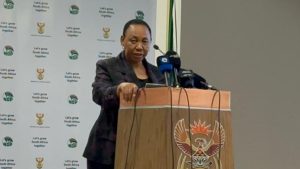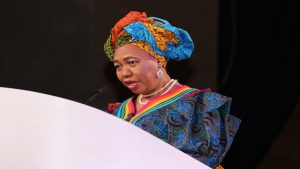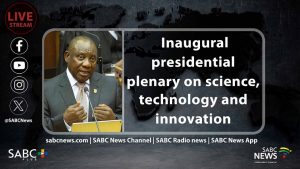The latest TIMMS data shows that South African is still at the bottom of the global average in Maths and Science. But the good news is that learner performance is improving nationally.
The Department of Basic Education released the 2019 Trends in International Mathematics and Science Study (TIMMS) in Pretoria on Tuesday. TIMMS is an assessment that is internationally recognised to measure a country’s performance in Maths and Science.
The TIMMS compiled data from grade 5 to 9 levels. 39 African countries participated in the 2019 TIMMS including Morocco, Egypt, and South Africa representing Africa.
South African came second last in Maths and last in Science out of the 39 countries. Human Sciences Research Council’s Dr. Vijay Reddy says the country’s percentage has improved in the last 25 years.
“We can say the 25-year pattern for South Africa is the improvement by one standard deviation and that’s quite a milestone as the Minister, your researches inside the DEBE will also tell you. These are the changes with regard to Maths improvement and science improvements. So the other thing that’s important to see is over the years the best improvements have occurred at the left hand. The lower scores, probably people from lower-income households.”
Happening now at @DBE_SA, the release of the TIMMS study into the performance of learners in Maths and Science compared to other countries: 46 countries for Grade 9 and 64 for Grade 5. pic.twitter.com/EumvweT8NW
— Elijah Mhlanga (@ElijahMhlanga) December 8, 2020
Department of Basic Education releases 2019 Trends in International Mathematics and Science Study report:
Western Cape has the highest score while Limpopo is at the bottom. In both levels girls outperformed boys. Home resources are another element that influenced how pupils performed. Learners from no-fee schools performed poorer.
Basic education expert and founder of Programme to Improve Learning Outcomes (PLO) Professor Mary Metcalfe, says the country needs to deal with inequality in order to improve its education system.
Metcalfe says the focus should on ensuring that inequality is abolished. “If we focus on inequality and those intelligent learners who are not at the moment supported in such a way that they are learning. If we focus on them, we will be able to improve as a country and the future of the country depends on addressing equity. Not just for issues of seeing the best improve. I don’t like the provincial comparisons about who is doing well and who is not doing well.”
Grade 9 #TIMMS: Mathematics and science achievement by gender, 2019 pic.twitter.com/43Yq6yWXLe
— @SAgovnews (@SAgovnews) December 8, 2020
Foundation phase
Basic Education Minister, Angie Motshekga, emphasised that South Africa is struggling in the TIMMS due to the challenges at the foundation phase of education. But the improvement in learner performance is encouraging. Motshekga says focus on the foundation phase of South Africa’s education system will enable it to compete globally.
She says she intends to speed up the migration of learners from the Department of Social Development’s Early Childhood Development phase to the Education Department to make it easier to improve the foundation phase.
“We have to ramp the system from the bottom. We have to finalise the ECD programme so that our children are stimulated much earlier because we see that children who start being stimulated much earlier perform. We have to finalise the ECD migration and ramp that and get it sorted out. Seychelles is doing well because their children start almost formal education at the age of three, by the time our kids go to school at the age of seven they are four years behind.”
Poor curriculum design has been identified as one of the factors that impacted South Africa’s performance. Under-resourced schools in the country contributed to poor performance. The department and its stakeholders have resolved to improve the country’s TIMMS performance by strengthening support to under-resourced schools.






